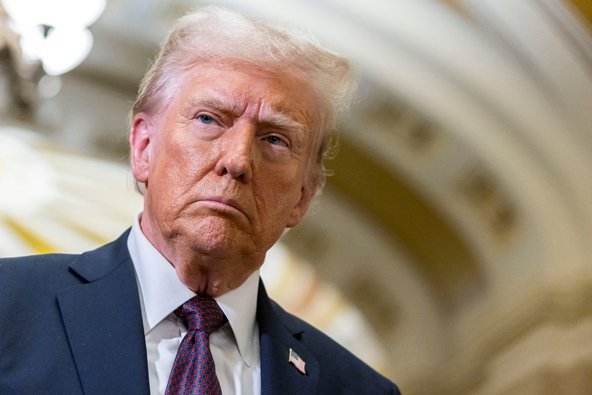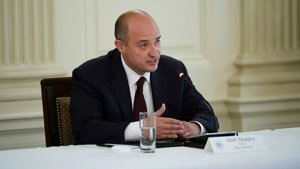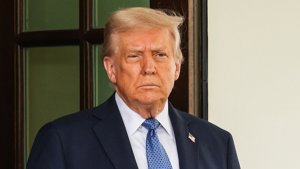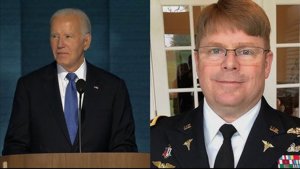
Senate Russia Sanctions Await Trump Approval
Senators urge Trump to approve sweeping Russia sanctions as peace talks stall and pressure mounts ahead of G7.
Bipartisan Push for Energy Sanctions Stalls at White House
Senate lawmakers are pressing President Donald Trump to greenlight a sweeping sanctions package against Russia, designed to cripple its energy-based war economy as peace talks with Ukraine continue to falter. The legislation, co-authored by Sens. Lindsey Graham and Richard Blumenthal, would impose tariffs of up to 500% on nations that purchase Russian oil, gas, uranium, and related exports.
The bill, supported by 82 senators from both parties, aims to tighten financial pressure on Moscow by targeting its top trading partners, primarily China and India. Together, these nations account for nearly 75% of Russia’s energy export market. Lawmakers say the sanctions could serve as critical leverage to push Russian President Vladimir Putin toward a ceasefire in Ukraine.
“If President Trump asked me my opinion, I would tell them, ‘let's go now,’” said Sen. John Kennedy, one of the bill’s co-sponsors. Yet despite overwhelming bipartisan support, the bill remains stalled as the Senate awaits direction from the White House.
President Trump has prioritized a diplomatic resolution to the three-year conflict, recently expressing frustration with Putin’s failure to engage in serious negotiations. Talks held in Istanbul ended without progress, as Putin’s demands for Ukrainian territory were swiftly rejected by President Volodymyr Zelenskyy.
Graham and Blumenthal, who met with Zelenskyy during the Senate’s Memorial Day recess and later spoke with French President Emmanuel Macron, emphasized that while Trump’s peace efforts are commendable, Putin has shown no interest in reciprocating. “It is our view Putin is not responding in kind,” Graham stated, adding that the Kremlin continues its campaign to “dismember Ukraine.”
Blumenthal was more direct, claiming Trump “has been played” by Putin, who he described as “totally unserious” about peace. The senators plan to brief all 100 Senate members this week on the status of the war and the proposed sanctions strategy.
Even House Speaker Mike Johnson has voiced support for strict economic penalties, suggesting broad bicameral alignment. Still, Senate Majority Leader John Thune emphasized the need to coordinate with the White House to ensure the bill aligns with Trump’s broader diplomatic objectives. “We’re trying to give [President Trump] as much space and room as necessary,” Thune explained, allowing Trump to pursue the best possible outcome in talks with Russia.
Other lawmakers echoed this sentiment. Sen. Thom Tillis argued that the sanctions package would bolster Trump’s negotiating position, not undermine it. “This is a real enabler for the administration,” he said.
Sen. Tim Kaine added that the proposed sanctions would give Trump greater leverage in peace negotiations. “These are sanctions that would be very punishing to the Russian economy,” he said. “The president can say, ‘This is going to be very serious, but it can be avoided if we reach an accord right now that’s a ceasefire.’”
As the G7 Summit in Italy approaches, pressure continues to mount. Lawmakers hope the sanctions package will be approved and deployed as a powerful signal to both Moscow and its global partners. Whether that happens depends largely on President Trump’s final decision in the coming days.






